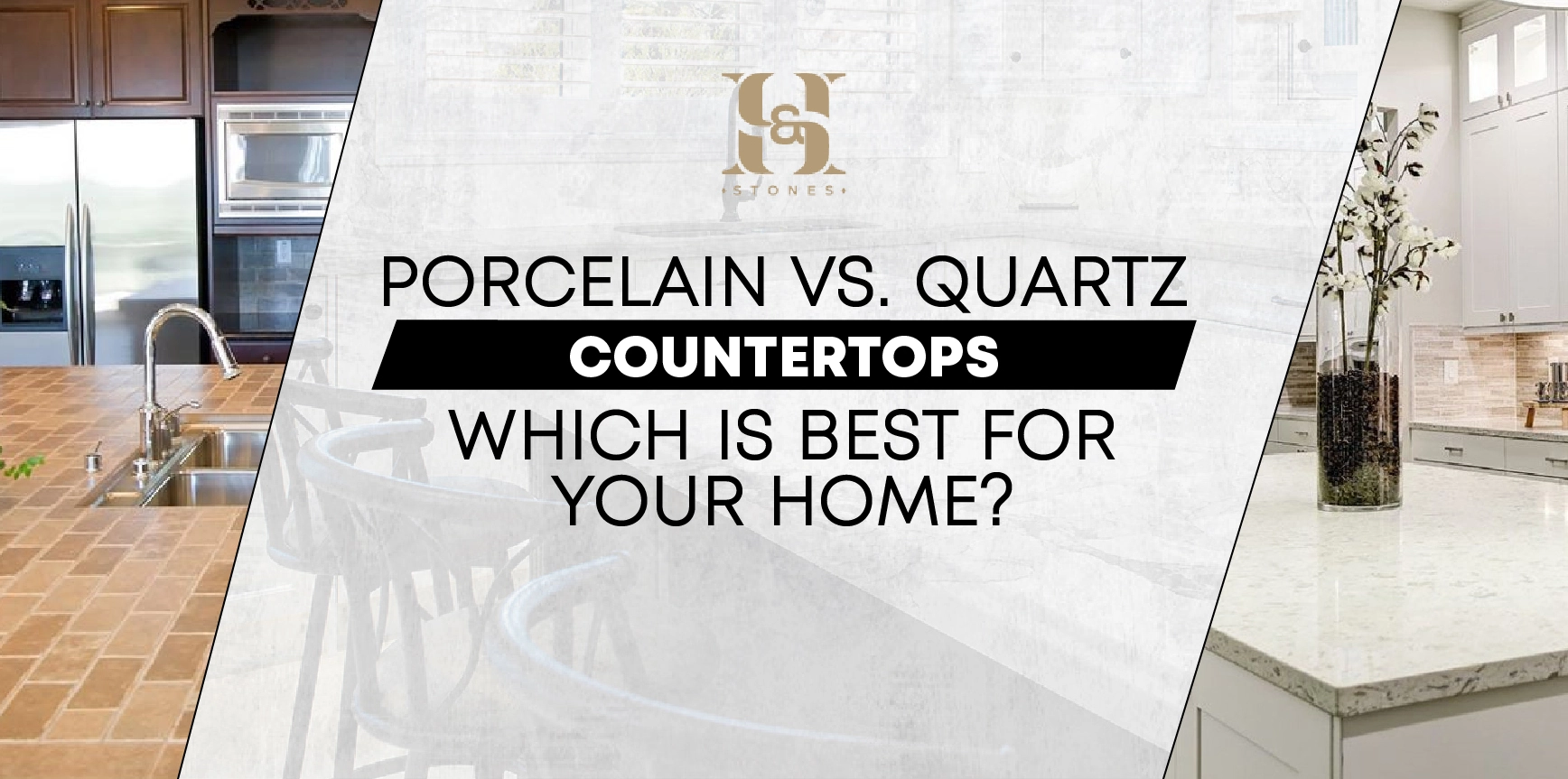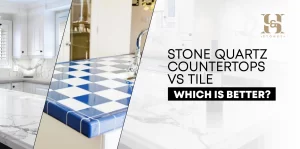FYI, porcelain and quartz countertops are both excellent materials to use in your home. But if you had to pick your top-tier premium quartz countertops to fancy the beauty of your home, which one would you go for? See the detailed comparison below before you decide.
You may have knowledge about some of the regular countertops, such as marble and granite. But have you considered fabricated stone surfaces, like quartz or porcelain? You must take advantage of the materials used to make these countertops.
While there are many best countertops you can choose from, porcelain and quartz stand all because they come in a variety of styles. And you can achieve any eye-catching look you can imagine with these countertops.
Porcelain Characteristics Breakdown
Porcelain countertops are made from clay and burn at very high temperatures, making them heat-proof. This long-wearing and light-bonding substance does not accept moisture. You can apply glaze to decrease the permeability and increase the durability of slabs. Porcelain countertops are unique and also aesthetically interesting. It is not prone to chipping or cracking and is long-lasting as well.
But one of the great benefits is how the low porosity renders the surface free from any bacterial or mold growth, which is good for food preparation.
Quartz Characteristics Breakdown
Quartz countertops are made up by binding natural quartz crystals with resin. This results in the creation of a tough and, at the same time, innovative and ideal layer on the slab, which can be appealing to the eye. Natural stone, on the other hand, is porous; thus, quartz is easy to clean, and it does not harbor bacteria like the natural stone.
Endurance in the Home
The quartz countertops are durable and hard wearing; they are non-porous and stain-resistant. Quartz countertops do not need to be sealed and come in a long-lasting shine.
Porcelain countertops are basically refined clay heated up at extreme temperatures. This makes them suitable for kitchens that experience sudden changes in temperature due to cooking and washing of utensils, among other activities. The sparkling white quartz also adds a dazzle to the environment.
Style and Appealing Factor work for both countertops.
Thus, choosing whether to install quartz or porcelain countertops is critical since the look equals almost everything.
Quartz countertops have a vast number of combinations in the design area, including the modern color schemes and the complex stonelike patterns. If you are considering adding sophistication to your kitchen, then this is a product that you should consider.
Porcelain countertops, however, are more plain and can mimic stone, wood, and metal surfaces very well. Additionally, it is lighter as compared to other materials.
In the end, it comes to the personal taste and the active mood in the kitchen.
Which one is more resistant to scratches?
Quartz and porcelain are fairly scratch-resistant. Ceramic knives scratch porcelain countertops, and to use these countertops, you will always have to use a cutting board. It leaves the surface sharp and rough, jagged, which is not easy to polish and brings the countertop back to its pristine gleam without the help of a professional.
The quartz will be harder than most other countertops, and therefore its resilience to chips and cracks will be better than that of many of these countertops, such as porcelain. It does not stain or scratch easily. Actually, premium quartz countertops are able to remove light scratches using polish.
What is the difference?
Quartz and porcelain are also two of the best materials for countertops that can be used at homes. Overall, the only difference between the two is that quartz is a hard and non-porous material that will wear well when used day to day on a countertop.
Of course, there are positive and negative characteristics. Quartz surface, when compared with porcelain, quartz has a clear advantage in terms of depth of color and texture. The patterns created in porcelain are not very deep; it is outright to say that they are just surface deep. That could mean that if you are to get a chip on the surface or stain the countertop in some way, that flaw will be more evident because the pattern is not embedded within the material.
Maintenance and Upkeep
Quartz countertops are very simple to maintain. Quartz products are built to be long-lasting, and since quartz is a hard material and is nonporous, it does not need sealing or polishing. Porcelain countertops are also non-porous, making them easy to clean; however, they require the services of a professional, especially for any damages. In this case, the two surfaces should be cleaned using mild products, and the pad used should not be abrasive so as to retain the high glow of the surfaces.
Cost Implications
On average, quartz costs more than porcelain; however, the countertops serve for a longer time, and they are easier to customize.
Porcelain is an affordable and also durable material. These include fabrication and installation complexity on both the materials of structures and facilities.
Quartz, however, may need a huge capital investment in the first place, but the duration may not require so many replacements. Furthermore, using quartz countertops also improves the value of homes as well as results in better living standards. Of course, it is again down to appearance while taking into consideration the costs.
Which is better? Quartz or porcelain?
Porcelain countertops are becoming more popular. To the contrary, although porcelain countertops will cost less in the short term, it will be overshadowed by the numerous long-term benefits related to quartz.
Premium Quartz Countertops is therefore very hygienic, does not stain, and can be cleaned very easily since it is made from quartz, which is a non-porous material that will last for a very long time with minimal wear and tear.
Since quartz is hard-wearing and easier to clean as compared to porcelain, it is a suitable material for use on countertops.
Compared to the other types of stones, quartz can fit any room and transmit all the comfort and richness of the cost implications.




